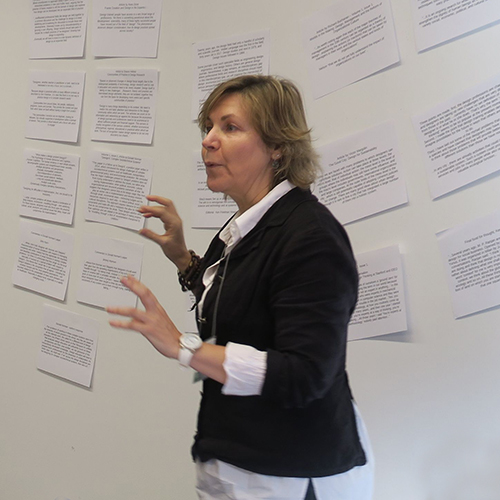Research can take some time to wend through reflection, reviews and revisions. An article coauthored with Susu Nousala and Peter Jones took about 2 years to formal publication.
- In October 2016, we convened a preconference workshop on “Some Future Paths for Design Professionals: DesignX and Systemic Design” at the Relating Systems Thinking and Design Symposium (quickly blogged as observations in the week following).
- By February 2017, the conference proceedings for RSD5 were published, including our working draft.
- In November 2018, after multiple rounds with reviewers — for which Susu and Peter deserve all of the credit! — the article was officially published in FormAkademisk – Research Journal of Design and Design Education.
While a working paper can be more open-ended, a scientific publication seeks greater closure. From the conclusion, here’s a paragraph that wasn’t in our original 2016-2017 writing.
The RSD5 DesignX workshop provided for continuity and discourse building between members of various design programmes, practices and allegiances. It was a not intended as a venue for specifically articulating and defining the design research agendas linking DesignX with systemic design studies or with these agendas. Further development of these enquiries through other workshops and discourses will extend the continuity of the discussion and evolve something of a common language, if not a corpus, to better fulfil the potential of design research agendas in systemic design.
The RSD5 workshop held in Toronto October 2016 resulted in a rich body of conversations amongst participants that is only partially reflected in this summary. It is hoped that the opportunity for subsequent sessions with differing members of the discipline (such as the contemporaneous doctoral workshop at the Tongji University College of Design and Innovation) will deepen the enquiry into the purposes and meaning for design research. Engaging practicing designers on issues with current and prospective work reveals blind spots to which educational programmes should respond. The questions raised in the post-workshop reflections could be expanded, exploring additional perspectives that have not as yet been recognised or appreciated. [Nousala, Ing, Jones 2018, p. 12]
While we, as researchers, tend to focus on continually pushing our frontiers of knowledge forward, the process of review in scientific publishing sets milestones of static artifacts that reflect a snapshot in time.
Reference
Nousala, Susu, David Ing, and Peter Jones. 2018. “Systemic Design Agendas in Education and Design Research”. FormAkademisk – Research Journal of Design and Design Education 11 (4). https://doi.org/10.7577/formakademisk.2608.



